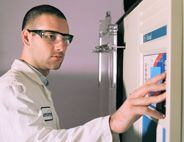Senomyx first told the market about S617 in August 2012, and announced it had "agreed to work with PepsiCo to advance this new flavor ingredient into the preliminary development phase, which includes the initial safety studies and other activities necessary to support regulatory filings in the U.S. and elsewhere".
Owing to confidentiality agreements, it cannot provide details of what PepsiCo is working on, but has said S617 can enable significant reductions of both high fructose corn syrup (HFCS) and sucrose in a variety of applications, including carbonated soft drinks.
As for regulatory hurdles, Senomyx is “on-track with development activities to support GRAS regulatory filings for S617 in the first quarter of 2014”, said CEO Kent Snyder, but would not provide further details.
Growth in 2014 and 2015 will be primarily driven by our collaboration with PepsiCo and the direct sales initiatives
Speaking on the Q3 earnings call yesterday, president John Poyhonen said: “We can't discuss S617 commercialization plans specifically based on confidentiality provisions on our agreements and competitive considerations but obviously we believe that the non-alcoholic market is very large opportunity.”
However, the commercialization of S617 coupled with revenues from direct sales and royalty payments should help Senomyx achieve profitability in 2015, he predicted: "We are currently forecasting that commercial revenues will grow to approximately $25m in 2015.
“Senomyx’s growth for 2014 and 2015 will be primarily driven by our collaboration with PepsiCo and the direct sales initiatives [Senomyx now plans to sell some flavor ingredients directly to flavor companies rather than relying solely on licensing deals].”
Snyder added: “We expect S617 will be used across a wide range of food and beverages including the important carbonated soft drink market in North America.
“The utility of S617 with both fructose and sucrose could allow manufacturer that use these sweeteners to focus their flavor system efforts on a single sweet taste modifier therefore potentially increasing efficiency and cost effectiveness.”
Direct sales

Building on work by scientists who have successfully cloned human taste receptors for sweet, bitter and umami tastes, Senomyx uses high-throughput biological screening techniques to evaluate millions of molecules to identify which substances bind to specific taste receptors.
So far it has programs for sweet, savory, salt reduction, cooling and bitter-blocking, and has struck deals with big names in the industry from PepsiCo and Firmenich to Ajinomoto.
Work on the direct sales initiative is also progressing nicely, said Poyhonen. "We have established two contract manufacturing agreements, completed the hiring of our initial commercial organization, finalized supply chain and distribution services, and expanded flavor company evaluations of offerings from our Complimyx brand of taste modulation ingredients.”
Key to the offering will be Sweetmyx SR96 (formerly known as S9632), a sucrose modifier currently being evaluated by flavor companies for use in non-alcoholic beverages and powdered beverages; and MSG replacer/reducer Savorymyx UM80, which will be “available for potential worldwide sales by mid-year 2014”, he said.
Natural sweeteners work progressing

Senomyx did not provide a detailed update on its program to develop novel no- or low-calorie natural high intensity sweeteners and sweet taste modifiers, but said it had achieved “taste proofs-of-concept with the identification of a natural sucrose modifier and a natural sweetener”.
A lot of cash, no debts
While Senomyx is still loss-making, it has a lot of cash and no debt, and ended the third quarter with $35.6m in cash and highly liquid investments.
Total revenues were $6.7m for the quarter ended September 30, 2013, vs $7.9m for the same period last year. The net loss was $0.09 per share, vs $0.05 per share for the previous period.
